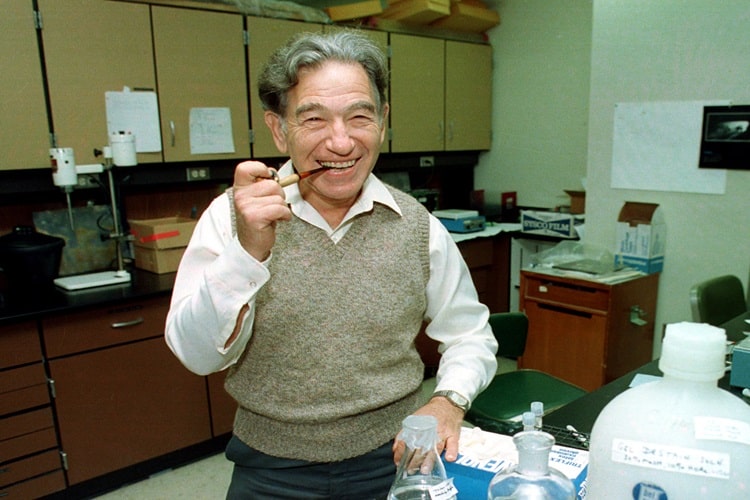Unmasking a Legend: The Story of Stanley Cohen

Stanley Cohen (November 17, 1922 – February 5, 2020) was an American biochemist. He was awarded the Nobel Prize in Physiology or Medicine in 1986.
Life and Career
Stanley Cohen was born on November 17, 1922, in Brooklyn, New York, USA. He grew up in a Jewish family and displayed an early interest in science. Cohen’s childhood during the Great Depression influenced his resilience and determination.
Stanley Cohen earned his Bachelor of Science degree in biochemistry from Brooklyn College in 1943. He continued his education at the University of Michigan, where he obtained his Ph.D. in biochemistry in 1948.
Cohen’s career was marked by groundbreaking research in the field of molecular biology. One of his most notable contributions was his collaboration with Rita Levi-Montalcini in the 1950s, leading to the discovery of nerve growth factor (NGF). This discovery played a crucial role in understanding the development and survival of nerve cells.
In 1959, Cohen joined the faculty of Vanderbilt University School of Medicine, where he continued his research. His work extended to the discovery of epidermal growth factor (EGF) in the 1960s, a protein that stimulates cell growth and differentiation. Cohen’s research significantly contributed to the understanding of cell signaling processes and their role in cancer and other diseases.
Throughout his career, Cohen received numerous honors and awards for his scientific achievements, including the Nobel Prize in Physiology or Medicine in 1986, which he shared with Rita Levi-Montalcini. The Nobel Committee recognized their groundbreaking work on growth factors and cell communication.
Stanley Cohen passed away on February 5, 2020, at the age of 97.
Award and Legacy
Stanley Cohen was awarded the Nobel Prize alongside Rita Levi-Montalcini for their groundbreaking discoveries concerning the regulation of growth factors and the communication between cells. This recognition highlighted the significance of their work in advancing the understanding of cellular processes.
Stanley Cohen’s legacy lies in his groundbreaking contributions to molecular biology, particularly in the discovery of growth factors and their role in cell communication. His work laid the foundation for understanding the mechanisms that regulate cell growth, differentiation, and development.
The identification of nerve growth factor (NGF) and epidermal growth factor (EGF) has had profound implications for medicine. Understanding these growth factors has led to the development of new therapies for diseases related to abnormal cell growth, including certain types of cancer and neurodegenerative disorders.
Stanley Cohen’s dedication to scientific inquiry and his ability to unravel complex biological processes serve as an inspiration for aspiring scientists. His career demonstrates the importance of curiosity, persistence, and collaboration in advancing scientific knowledge.
Cohen’s impact extends to his role as an educator. As a professor and mentor, he influenced and guided numerous students who went on to contribute to the field of molecular biology.
Observer Voice is the one stop site for National, International news, Sports, Editor’s Choice, Art/culture contents, Quotes and much more. We also cover historical contents. Historical contents includes World History, Indian History, and what happened today. The website also covers Entertainment across the India and World.
Follow Us on Twitter, Instagram, Facebook, & LinkedIn

